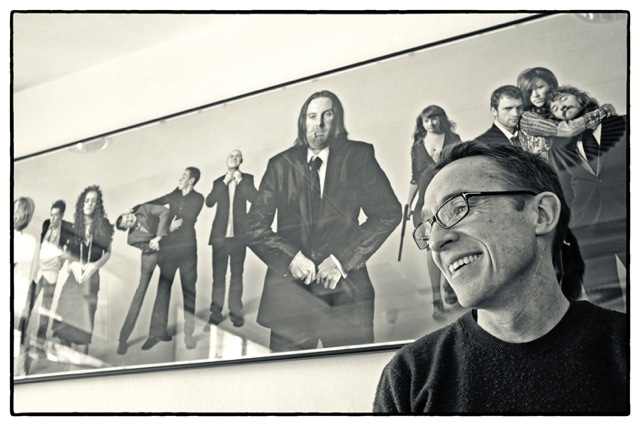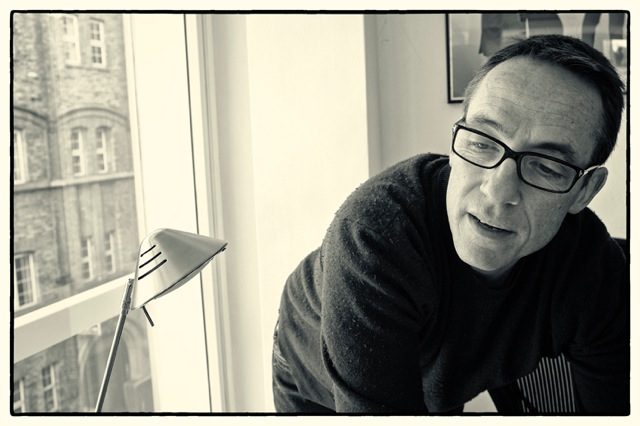win scripting coaching from John Yorke
June 14, 2015 @ 6:50 am Posted in News CommentsWe’re delighted to announce that John Yorke, the man behind many of Britain’s best dramas, is acting as a mentor on the Media Parents Back to Work Scheme, and has also kindly donated a place on his storytelling for screen course to one lucky Media Parents member. For details on how to apply by THURS 18th JUNE please see the watercooler at www.mediaparents.co.uk

John Yorke and the cast of Shameless. Huge thanks to John for mentoring for Media Parents and for this opportunity.
STORYTELLING FOR SCREEN (ONLINE) – FEEDBACK
Rachel, UK
“Brilliant course. It’s been a blast. I’ve learned a lot from all my fellow writers. All David’s help and feedback during the course has been fantastic, and as a result of the course, I feel much more confident about tackling difficult story lines than I ever have done before.
The final report in particular was very useful. I have learned a lot, and I have loved it. I know I still have quite a bit of work to do, but I don’t mind hard work. All the feedback and encouragement has been extremely valuable.”
Norman, UK
‘The end-‐of-‐course feedback was fantastically helpful – I’m already at my desk, working on the next version of my treatment.
David has given positive and focused criticism throughout the course – and this, combined with the insights from John’s book, mean I really feel a lot more qualified to write a script now that I have done the course. The beauty of structure!”
TEACHING
• The course lasts 16 weeks.
• Each of the first 6 sessions runs over 2 weeks; the final session runs over 4 weeks.
• All the teaching, interaction with participants and tutor moderation takes place in an online classroom, accessed via a website, and course materials and forums are open 24/7.
• Sessions open on a Monday; assignments must be completed and uploaded by the following Wednesday with critiquing of fellow participants’s work completed by the final Sunday in the fortnight, before the next session opens.
• Completed sessions remain open throughout the course so that you can review course materials and revise your work.
The course is taught using the following:
• Short audio files from John Yorke.
• Short video files from John Yorke, David Roden and/or other industry experts.
• Online guidance notes and directed prompts and exercises, devised by John Yorke.
• Directed reading and viewing lists from John Yorke.
• Online peer critiquing from other participants in the group.
• Tutor moderation (David Roden).
• The support of an online community and virtual classroom.
• A dedicated resources area, continually updated by the Into the Woods course team.
FINAL SUBMISSION
At the end of the course, you will be invited to submit a 4-‐page treatment for one of your own stories. This might be for a drama, documentary, corporate video or reality show.
You will receive detailed written editorial feedback (of up to 1,000 words) on your submission from John and David, to evaluate your ideas and handling of techniques such as acts, scenes, and use of suspense, action and visual thinking, plus advice on where to take your ideas next.
SESSION PLAN
Session 1: Introduction to Storytelling Part 1
This first session is about reading, watching, thinking and experimenting. You’ll start by thinking about the grammar of storytelling and the essential elements of a story, and experiment with summing up a protagonist’s wants and needs. This session is also about getting to know your fellow participants.
Session 2: Introduction to Storytelling Part 2
The second session builds on the basic building blocks of the archetypal story identified in Session 1, examining structural form in more detail. Now you can identify a story’s protagonist, antagonist and desires, we’ll look at the inciting incident, the character’s journey and story endings (crisis, climax and resolution).
Session 3: Essential Storytelling Tools
This third session is about being able to see if a story works – how to ‘break a story’. You’ll start by thinking about the essential elements of a story, and experiment with three-‐act structure. By the end of this session you should be able to deconstruct a story.
Session 4: Five Act Structure
This session breaks down a story into five acts and looks at why this is such an invaluable tool for storytellers. Practical exercises include identifying turning points and midpoints and rewriting a TV soap episode in five parts.
At the end of this session there is a live Q&A chatroom session with John.
Session 5: Building Stories
Introduces the basic building blocks of stories – scenes – and their properties, and explains why you need to get inside characters’s heads to make them work. Practical exercises include identifying the different parts of a scene and writing a story in five scenes.
Session 6: Top 25 Storytelling Tips
By now, you should know how to create your story, know how to test its elements to ensure it works, and structure your story into beats, scenes and acts. This recapping session takes you through some of John’s simple tips that we hope will inspire you to look at stories and scripts with a fresh eye. These are the 25 most important things to bear in mind when creating drama, and there are mini-‐exercises and clips throughout so you can check your knowledge and learn from masters of story structure in TV and film. If you have a problem with a story, these 25 tips probably provide the solution.
At the beginning of Session 7 there is a live Q&A chatroom session with John.
Session 7 Developing your own Treatment
Every television show will ask you – before commissioning a story – for a synopsis and a treatment. We start this final session by looking at the difference between a synopsis and a treatment, then learn the rules for writing a successful treatment.
This final session lasts four weeks, with two weeks to write your treatment and another two weeks to give and get feedback from your peers.
Approximately 2–4 weeks after the course finishes you will receive detailed individual feedback on your treatment from David and John. You will also have the option to continue working with your peers in a specially created course alumni area online.
The online classroom closes at the end of this session, but you can join the alumni area for an annual fee of £50. This gives entry to an archive of course materials and allows you to continue posting work for review from your peer group.
GETTING THE MOST FROM ONLINE LEARNING
The course has been carefully designed by John Yorke with the Professional Writing Academy, which has extensive experience in delivering writing courses online in universities, for CPD training, and for recreational writers. The course is intended to develop the skills we believe are essential for good writing in every medium, from novel to screen, including:
• greater knowledge of story structure
• an understanding of the writing craft and professional conventions • discipline, independent practice and confidence in your work
• the ability to critically evaluate writing (your own and that of others) within a professional context.
The learning model is structured around a combination of peer and tutor feedback and aims to develop and hone your critical faculties through constant practice and revision.
You will not be given detailed tutor feedback on every piece of work you submit (there are mentoring schemes offering this, if that is your preferred route). You will receive individual tutor feedback on each of your final session pieces, and then detailed feedback on your treatment from your tutor and John Yorke at the end of the course, which discusses your strengths and weaknesses, and offers advice on where to take your work next.
Although your tutor monitors your work through the course, perhaps more important in the learning experience are the close working relationships you establish with other participating practitioners, who will include writers, editors, creatives and professionals from the writing and screen industries.
The practice of critiquing each other’s work increases and refines your understanding of what makes a good story – and the working relationships that form very often carry beyond the course to provide you with ongoing discussion and feedback from a close-‐ knit group of practitioners you trust.
Sometimes, students with little experience of critiquing or working in a group can feel rather intimidated by the process at the outset – often because they think they will feel more comfortable with a one-‐to-‐one relationship with a tutor.
This is fine, but it isn’t what we offer here. So please think carefully before accepting a place that will challenge you, develop your work, and require you to work with other writers and to deadlines.
This course is not a passive experience predicated on submitting work for ‘marking’ by a tutor, but a challenging, dynamic process that we know will help you grow into the best creator of stories that you can be.
John Yorke is former Controller of BBC Drama Production, Head of Channel Four Drama and Managing Director of Company Pictures. As a Commissioning Editor and Executive Producer, John has championed many of the defining works of British television, and is responsible for some of the biggest audience for drama in UK TV history. He has overseen some of the UK’s most enduring and popular programmes, from Shameless and Life on Mars to EastEnders and Holby City, alongside award-winners like Bodies and Wolf Hall.
John has worked with a vast array of talent, from Paul Greengrass and Paul Abbott to Debbie Horsfield and Jimmy McGovern. In 2005, John created the BBC Writers Academy, the only writing course in the world guaranteeing broadcast work and which has produced a generation of successful television writers. His first book Into The Woods (Penguin) is the UK’s bestselling book on narrative structure.


